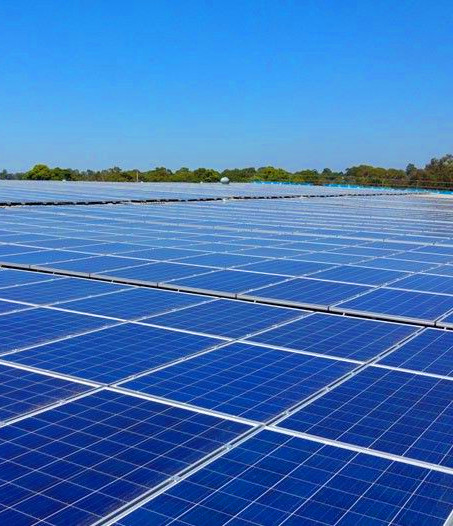Solar set to eclipse atomic
 The “fathers of photovoltaics” have dismissed nuclear power as a “distraction” in the energy sector.
The “fathers of photovoltaics” have dismissed nuclear power as a “distraction” in the energy sector.
Australian solar pioneers Andrew Blakers and Martin Green have been awarded the Queen Elizabeth Prize for Engineering for their work on PERC solar photovoltaic technology, which has reduced the cost of solar panels by 80 per cent over the past decade. The received the award at Buckingham Palace on Thursday alongside colleagues Aihua Wang and Jianhua Zhao.
Speaking from London, they labelled nuclear energy as a “cottage industry” incapable of achieving economies of scale within a meaningful timeframe.
Blakers and Green anticipate an imminent and exponential growth in solar energy that will eclipse all other energy sources.
According to Professor Blakers, solar energy will experience a transformation as rapid as the In contrast, they characterise nuclear power, including small modular reactors, as “pie in the sky”.
Professor Green argues that nuclear's promise hinges on achieving economies of scale, which would necessitate selling hundreds, not just a few prototypes, by 2030.
Nuclear power, they argue, is not aligned with the net-zero emissions race, having seen minimal capacity expansion over the last 13 years, while solar and wind have grown at an annual rate of 20 per cent.
Solar energy's affordability and sustained growth rate position it as the key player in decarbonising the world by the early 2040s.
One significant challenge, the inventors note, is the need for expanded transmission infrastructure to support the integration of solar and wind energy into cities. They predict a potential transmission problem in Australia as the share of solar and wind in the energy mix increases.
While solar is set to reshape the energy landscape, Professor Green believes China's dominance of the solar panel supply chain is unlikely to be challenged by other countries.
Despite the potential for India to become a significant manufacturer, they say it may not replicate China's level of coordination and cooperation in the industry.
However, China is expected face pressure to meet higher environmental and social standards, creating opportunities for Australia to become a player in supplying environmentally friendly metallurgical-grade silicon.








 Print
Print